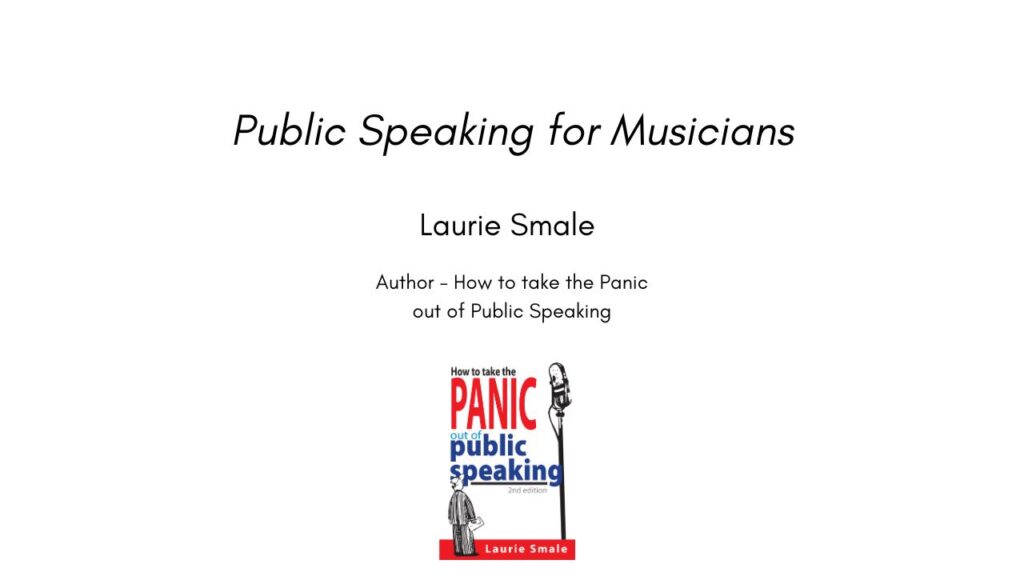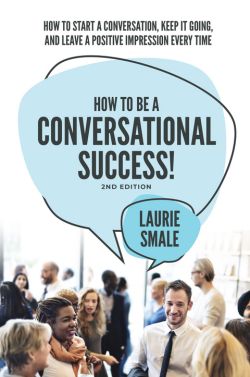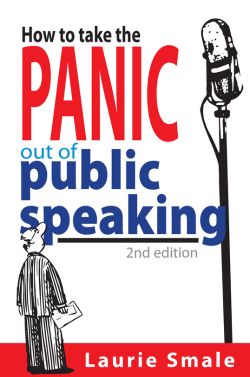Article Public Speaking for Musicians
As a rule, musicians don’t feel comfortable speaking publicly. Here’s how to avoid this awful challenge with Master Speech Coach and Inspirational Speaker Laurie Smale.
Professional musicians don’t normally speak to their audience. They walk on, play their music, and walk off.
Thus they nourish the faulty mindset that if they open their mouth to speak they’ll ruin everything and make a fool of themselves.
So they keep quiet and never learn to add value to their performance with the confident spoken word.
I was once talking to a renowned violinist with the Melbourne Symphony Orchestra when he admitted that he was extremely concerned about the possibility of having to speak to the audience as leader of a chamber quartet performing in regional Victoria.
“What am I going to say that will make sense and add interest to our performance?” he confided. “And what if I make a mistake and look a fool!” His concern was real for he had a fine reputation to protect. This man was a violin virtuoso and for years had made beautiful music before large crowds from the relative safety of the orchestra… But public speaking? Well that was another matter!
Even if you’re a younger musician, why suffer for years like this man did until he got help and was able to recognise his own worth and find his ‘speaking’ voice?
You can do it too if you know a few simple strategies.
So by instilling these tried-and-proven strategies into this person’s thinking he is now able to step forward, connect with his audience on a human level and take them with him on a musical journey.
Now, instead of being frightened, he comes across as:
- a friendly, approachable person
- being able to make his listeners feel welcome
- informative about the composer and what inspired the music
- engaging them in aspects of the piece about to be played
- guiding them on things to look out for
- feeling as if they have experienced a full-rounded performance
Pay special heed to the following five ideas and inspirations and you’ll be able to do the same.
1. Nerves are normal: One of the biggest fears our friend had to overcome was his public speaking nerves. So the first thing I got him to understand is that public speaking, like playing in an orchestra, or being in front of people for any reason, makes us keyed-up and generates a rush of adrenalin. It’s perfectly normal to feel this way. The secret of settling your nerves fast is to bring people in on an intimate level with the first words you say.
For example I got him to begin with something like: “First of all, we’d like to thank you all for making the effort to be here… we really appreciate it… it’s such a lovely setting and we’ll do our best to make some beautiful music for you… ”
The secret is to do this in an informal, conversational manner for it adds a touch of ‘human’ balance to the formality of playing your instrument.
All this will sound perfectly normal to your listeners and bring them into the stories behind your music, enriching them even further. This will help take the cold hard pressure off you and transform your nerves into warm rapport. And take your time with this so your listeners can savour your words. Their appetites whetted, your listeners are now eager to be involved in the musical side of the story.
2. Know your own worth: Equally important in dealing with your nerves is you have to believe that you’ve earned the right to be there and are not some fake or fraud. This violinist had spent many years earning the right to be where he is as a leading musician yet his misguided thinking had him believing that everyone was there specifically to judge his public speaking incompetence! This was the last thing on their minds… but they did want to be entertained!
As it turned out, on the day of the performance, this man’s revitalised ‘presence’ radiated that he was okay, he knew his own value, and he was eager to share his passion for music with his audience by way of the spoken word as well.
3. Speak informally: The style of delivery is all important too. So I led our friend to see that a relaxed, intimate manner of speaking would help him connect with his listeners on a human level. Therefore a friendly, informal conversation was what was needed – not some formal university lecture.
In other words, a friendly chat that would have his listeners feel as if he was talking to them over the dinner table. Let’s face it, all they wanted was a warm sharing of uncomplicated ideas they could relate to. He began to see that unlike his violin playing, a few friendly words before each set were not supposed to be absolutely perfect technically speaking – they just had to be interesting!
These simple insights freed him to lace his comments with intriguing stories and interesting snippets, which lifted a great weight off his shoulders. The good news is these stories don’t have to be remembered word-for-word. Simply replay them as you would a ‘happening’ in everyday conversation so they’re always new and refreshing.
4. Seek out little known facts: To ensure your verbal preludes to a piece of music are interesting, seek out little-known facts about the composer or how they composed the piece, the more intriguing the better! What is the story behind this particular piece of work? Was the composer a quirky or eccentric character? What mischief did they get up to? Share a little-known story as an example of this. You’ll have your listeners craning forward on the edge of their seats hanging on your every word. And we’re only talking about a very short span of a minute or so here.
5. Help them be part of your performance: You could actually direct your listeners to imagine themselves as the composer, wandering alone in the forest when inspiration struck you. You could get them to picture a certain setting and what it might have been like… Or you could set your listeners up to listen for certain aspects of the piece that highlight a particular part of the ‘story’.
These imaginative techniques will actually have your listeners feeling part of your performance. So if you want to stand apart from the average instrumental performer and add a bit of magic to your performance – speak with your audience!
Open with a friendly welcome then introduce each item with an interesting story, delivered in a friendly approachable way by someone who believes they’ve earned the right to be there. This rare ‘speaking’ dimension will ensure all your musical performances are a total entertaining experience for those who have specially come to listen to you.
These tried-and-proven public speaking tips reflect the exciting outcomes embodied in my second edition best-selling classic book, ‘How to take the Panic out of Public Speaking.’

© Laurie Smale Inspirational Speaker, Speaking Coach, and Author
ARTICLE // Public Speaking for Musicians
By Laurie Smale, Author, How to take the panic out of public speaking 🎤
- Nerves are normal
- Know your own worth
- Speak informally
- Seek out little known facts
- Help them be part of your performance
Read all the details at https://lauriesmale.com/blog/article-public-speaking-for-musicians
All of my practical coaching wisdom is in my three books available at https://lauriesmale.com/books
#lauriesmale #article #howtotakethepanicoutofpublicspeakingbook #publicspeaking #publicspeakingformusicians #musicians
Shared Online Archive.org Facebook Page Facebook Profile Google LinkedIn Page LinkedIn Profile Twitter / X








